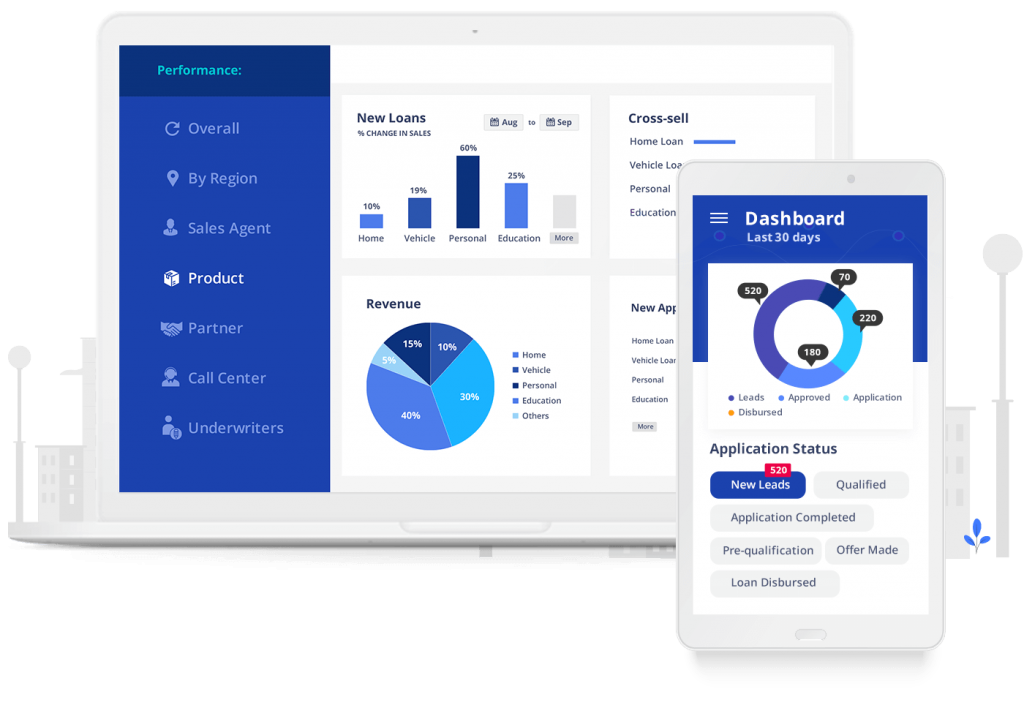Solutions such as CRM help businesses in every industry to step up their game in this era of hyper-personalization and digital sales experiences. In addition to aggregating information, Real Estate CRM may use its data to create leads, convert customers and automate procedures so that agents can close more deals and reach more purchasers.
This article will explore the top CRM’s most significant real estate benefits and how it contributes to smoother sales operations and more personalized buyer encounters. If you plan to acquire a CRM software, consider these advantages when assessing your potential options.
Better Lead Management
The real estate market is being revolutionized by technology. Just five years ago, a potential buyer who wanted to look at homes for sale could simply rely on a listing book, go around the location to look for the “for sale” signs, call a dealer, or take a newspaper to see the listings available. Today, it’s much more likely that the same potential buyer starts to browse online… 90% of house buyers seek houses online when they start their home hunt, and they undoubtedly reach on one of their listings and complete a lead form to track you.

So, how do you handle these “inbound leads?”
Suppose you are generating leads online, and you don’t have a CRM; all your new incoming contacts, tasks, listings, transactions, and cash will be virtually impossible to handle. Furthermore, without a CRM, you will miss some steps and miss possibilities of connecting to potential customers.
CRM Helps You to Keep in Touch with Your Previous Clients
Eventually, it happens to everyone. You focus so much on today’s business that you forget what made you succeed: your relationship with prior customers. This will not happen if you use CRM efficiently. Every time you complete a transaction with a new customer or get a new lead, put them to a tracking plan which includes personal contacts and automated marketing so that you remain alert.
CRM Helps You to Build Stronger Connections
The reliable feature of creating good relationships is one of the most vital aspects of a real estate CRM. However, while we’re busy, it’s simple to drop essential calls and emails. Your CRM gives responsibilities and tracking so that when you tell your customers that you will call them on Tuesday, they know they can expect you to call on Tuesday. Besides, it lets you maintain track of previous discussions, so you can always take up precisely where you have left each time you chat to a current or prior client or prospect.
It Improves Employee Efficiency.
This software will boost client collaboration and have a substantial impact on the workflow of your company and the efficiency of your personnel. You may integrate it with many different applications that you use every day, allowing you to access data from a single interface. You must acknowledge that this is useful, as it will save you a lot of time.
Besides, it allows you to automate several processes. This increases the efficiency of all people and gives your staff more time to concentrate on other elements of the job that can get your business to the next level.
CRM Allows You to Make More Efficient Use of Social Media

You can use social media to remain in touch with friends and family like other people, but you might be effective at using it to help your company significantly. However, anecdotal evidence and research show that younger generations prefer social media and be contacted by email or phone.
In fact, you may use social media to find reasons to keep in touch with the expanding number of old customers, prospects, and other social media contacts through the links between your social media accounts such as Facebook, LinkedIn, and Twitter and your CRM. Keep track of your social media contacts in CRM, and over time you can build deeper links.
Standardize Approval Workflows
One of the significant things about CRM is how processes are aligned. For example, approval workflows are business processes within the CRM requiring agents to sign specified needed actions throughout certain phases of a process. Managers can construct workflows for approval for as many procedures as they like.
Workflows align agents with a certain process and keep the management informed about the progress and automate process activities at the right phase. For example, standard contract approvals, by asking the agent to collect certain documents, enter particular pieces of information into the CRM, and wait for a specific manager to sign off, are just a few of the features that can be integrated into your approval processes.
As a result, CRM becomes increasingly process-centered across the board, with many of the advanced workflow options available to meet every stage of your property, marketing, and service.
In summary, these are the most crucial advantages that you can gain from installing CRM software. First, it allows you to attract more customers and provide essential information to make a one-off offer for your prospective customers. At the same time, it will dramatically affect your daily business and help you grow and increase your income.












Leave a Reply